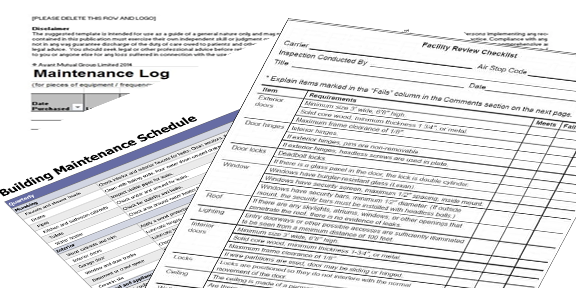Uncategorized
Maintenance Records
Importance of Consistent Maintenance Records
Facility managers know of the importance of record keeping for maintenance, repairs, and inspections of equipment within commercial facilities. We have all heard the benefits of maintaining equipment so that it does not cost more later in down time and preventable repairs. There are many additional reasons to keep accurate records of both maintenance and deep cleanings that may not be top of mind until something happens.
It is important to keep all records the same way.
have a form that requires all of the same information of what the issue was, how it was diagnosed, what was repaired and how to ensure that if further steps need to be taken, anyone can take over and know what has been done so far.
be thorough, these records live forever with the building, and are there if an issue arises, so that anyone can go back and see what was done in the past.
review the records quarterly so if questions come up, memories have not faded on what happened and techs have not moved on to another position. Periodic review can also provide an opportunity to fix reporting issues before they become problematic.
if you keep having to repair or replace a particular part because it’s worn down prematurely, perhaps that part isn’t receiving proper lubrication or needs a deep cleaning.
Other than equipment health and efficiency, here are a few more reasons to put in the extra time and effort to keep those maintenance records thoroughly and accurately.
Any legal situations that arise such as accident, injury, or structural failure will require review of maintenance records and the more accurate and detailed they are the better it will be for the staff and managers involved.
plant engineers and maintenance personnel need to have in the back of their minds that years from now they may be in a lawsuit.
tragedy magnifies the need for facility managers to not only keep good records, but to act on repairs when the situation calls for it.
if those who are in charge of maintenance obligations want to cut corners or pinch pennies, it is a good idea to keep records to cover yourself in the event of an incident.
Employee turnover
new hires that are trained about how the record keeping process works will keep the continuity of the records.
when a new manager comes in they know where to start in the process without duplicating work or missing preventive maintenance.
new employees can be brought up to speed quickly on a piece of equipment or an area of the facility.
Warrantee claims
be prepared to file a warranty claim on a piece of machinery. Some warranties will only cover repairs, replacements or a refund if you abide by certain manufacturer-specified standards of maintenance. When you can show the manufacturer a log that outlines all the maintenance work you’ve had done on the machine since you installed it, including dates and times for each repair or maintenance activity, it makes it clear what warranty claims you are entitled to.
Resale value
when a building owner wants to sell a building, missing inspection and maintenance reports can actually cause major issues and headaches. On the other hand it can provide value and show that the facility has been properly maintained.
equipment resale value can be affected as well. Potential buyers want to know the machine has been well-maintained. When you provide maintenance on time it results in increased productivity, decreased expenses, increased asset life, and makes assets more reliable. Detailed records of the maintenance performed can provide buyers with peace of mind when making a large purchase.
Safety of personnel
equipment maintenance logs equal less faulty machines, which results in less operator issues. A faulty machine will negatively affect your operator so you want to keep them in shape to keep your operator safe.
If operators know the damage they inflict on the machine is going to be recorded, they may work harder to keep it in good shape.
Prevent problems rather than react to them with proper records and thorough information.

